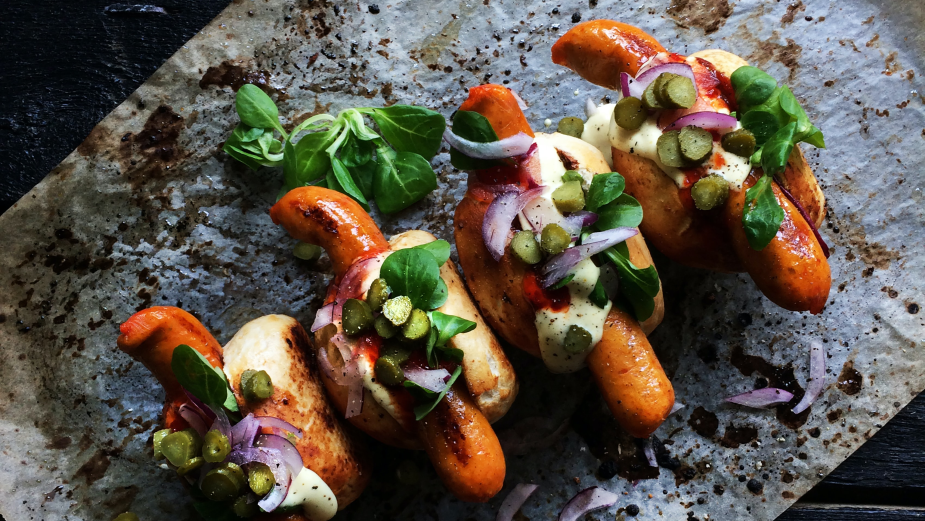
The Meat-Alternative Gold Rush

There's a joke that goes 'How do you know if someone is vegan? Wait for them to tell you.'
Well, I'm a vegan - there it is, I said it.
I started replacing some meals for plant-based food about 6 years ago. I was a 'flexitarian' for years until the pandemic, when I made the switch to being fully vegan.
Six years ago, however, it was slim pickings on the aisles of the supermarkets for vegans. It was tough, having been brought up on a mainly meat-based diet for my whole life, to have to figure out how to make food that I liked which was completely different to what I was used to - while still getting all the nutrients my body needed. A steep but worthwhile learning curve (I got pretty good at cooking, at least!) and a healthier body, eating a mainly whole-food, plant-based diet (there's loads of science saying this is the healthiest diet for the body and the planet - I'm not here to cite the hundreds of studies in this space though).
Fast forward a few years and the choice for a plant-based shopper has been revolutionised. Want to replace that chicken you used to eat? Here's a chicken alternative. Need a quick sandwich with stuff that you'd be used to finding in a sandwich? Here's a plant-based alternative. Fancy a meaty, juicy burger that has no meat in it? Here's a raft of burgers and burger joints to choose from with all the naughty, junk toppings you're used to.
Needless to say, we're spoilt for choice now. There's a dedicated vegan aisle at most supermarkets with a whole raft of products to get your teeth into and countless dedicated vegan restaurants (at least in most major cities). At the very least, pretty much every pub or restaurant will sell you a vegan burger.
With more choice and new brands seeming to pop up every few weeks, it's difficult to keep up. It also begs the question as to which of these new brands is better, or if there is in fact value in buying one over the other.
Casual Dining/lunch! 2022
A few weeks ago I attended the Casual Dining/lunch! show at the Excel and was blown away by the number of plant-based food brands on offer.
Some I knew well (e.g. Moving Mountains, Beyond Meat, THIS™, Future Farm™️, Meatless Farm, OGGS), some I'd been keeping my eyes on as they've started to emerge (e.g. Redefine Meat, OmniFoods, Jack & Bry, LA VIE™) and some I hadn't heard of before (e.g. LoveSeitan, Planted, BettaF!sh).
With so many brands to choose from, it did get me thinking - how are they differentiating themselves and is the market actually big enough to cater for them all?
A growing but slowing market?
There's no denying that over the past few years, people are trying to eat less meat and swap a few traditional meals for vegan dishes.
According to the Vegan society, the number of vegans in Great Britain quadrupled between 2014 and 2019. In 2019 there were 600,000 vegans (1.21% of the population); 276,000 (0.46%) in 2016; and 150,000 (0.25%) in 2014. In a 2021 global survey by NSF, 88% of food industry practitioners said that they expect demand for plant-based products to increase. 74% said they thought consumers choose plant-based for a healthier lifestyle and 60% believed it’s to be more environmentally friendly.
However, in the UK (where I live) only 2% of the population is vegan. That's a small portion. So, the real opportunity for plant-based brands is converting meat-eaters and making flexitarians out of them. Which is why, in reality, a lot of the emerging products are 'meat alternatives' as opposed to 'whole-food, plant-based' options.
Now that's all well and good. I personally have a lot of friends who are willing to try a plant-based burger, or hot dog, or chicken nugget, or whatever. And, as a vegan, I know a lot of those alternatives taste pretty good - I get to enjoy the food I used to love, without making the impact on the planet and animal welfare that I didn't.
The challenge I see for my friends (and the broader public), however, is knowing which one to choose. There's bloody loads of them now and the quality, frankly, varies. This means that it would only take one poor choice - 'ew, that was really nowhere near as good as meat' - to turn someone off the idea of eating more plant-based food.
And, with an increase in the cost of living - where people are being asked to make choices with their pockets over their purpose - the relatively high cost of meat alternatives might make them default back to what they know and, importantly, what they can afford.
How do you stand out in a sea of sameness?
Coming back to the stats I cited on why people decide to choose plant-based - 74% said they thought consumers choose plant-based for a healthier lifestyle and 60% believed it’s to be more environmentally friendly.
So while these people still may want foods they're familiar with, the main reasons for exploring vegan food are their personal health and the impact on the environment.
Shouldn't this, then, be at the forefront of the messaging? And shouldn't there be some education on how other, more traditional products (let's say tofu, or tempeh) can still be really good alternatives to meat, without being like-for-like replacements?
One brand doing this well (in my opinion) is Better Nature. On a card I got from one of the co-founders, Fabio Rinaldo, the tag line goes 'Not an alternative. Simply.'. I love it. I also really bloody like tempeh. It's not a meat alternative, it doesn't taste or feel like meat. But it's a whole-food, plant-based source of protein and fibre. And their product range continues to grow - their tempeh rashers are a regular item on my shopping list and my 23 month old daughter loves their marinaded bites.
Another brand I'm a fan of is The Tofoo Co. Again, their tagline of 'Tofu with taste' just kind of sums it up - simply. It's tofu, but it tastes good. Oh, and it's another whole-food, plant-based source of protein and fibre. And, again, their product range continues to grow, making it easier to implement into my diet without having to really 'prepare' tofu in the way you might otherwise have to.
Wicked Kitchen also do this well and, for anyone who follows anything Derek Sarno does, you'll appreciate how much he champions the mighty mushroom as a meat 'alternative'. Check out their Youtube channel to see some of the amazing things he does to make this simple, non-processed, food item look, feel and taste as meaty as any real meat might be to those who love it but are looking for a plant-based 'alternative'. They've started to offer more meat-alternatives in the last couple of years, but their original product line was... you guessed it, mainly made of whole-food, plant-based ingredients.
They're distinct products in a sea of sameness, hitting the mark of being 'healthy and better for the planet' - which is what consumers looking to switch are looking for.
To me, it seems this is the real area for expansion in the plant-based market. Products that aren't just saying 'want burger - here is meaty burger'.
It's about education. It's about giving people the information they need to make informed, healthy choices. Not just copying what's out there (while everyone else is doing it), but taking something that already exists (tempeh, tofu, mushrooms!) and getting people excited about them.
Don't get me wrong, I do buy many of the brands that offer meat alternatives myself sometimes - mainly if I'm looking to eat junk food. But that's the point, I buy many of them, and I know it's junk food. There's no real brand affinity - I'll probably just make my choice on what's stocked in my local Tesco Express, or Sainsbury's Local. I certainly won't go out of my way to find a particular brand. And I'm a vegan!
For the market they're looking to convert, in a sea of sameness, I feel we might be reaching saturation point. Brands who've had a head start gaining market penetration should adapt and capitalise on an area less saturated, by offering proper whole-food, plant-based options for those whom they've already hooked in with their meat-alternatives. That, to me, seems the healthier, more sustainable pivot and one that would help them stand out and grow in what is still a young, small market.
Helping brands adapt
At Continuous | From Uniform, we help brands adapt to rapid changes in the market.
Most recently we worked with Purity Brewing Co, helping them pivot from a market they've grown in over the last 18 years. In the alcoholic beverage world, there is a rise in popularity in the Low to No alcohol space. It's growing rapidly, similar to the plant-based sector - I was at the Lo2No Bev event the other week and was, again, fascinated by the burgeoning scene and number of new, upcoming brands that were there.
Purity's founder, Patrick O'Connor, had been unwell and on antibiotics for months, his system became depleted of all good bacteria. He then discovered kombucha and the health benefits it had for his gut. Out of this experience, Pure Booch Co was born. We helped develop the brand story, messaging and collateral to help launch the product in July. You can read more about that launch at this link.
If you're interested in seeing how you can adapt your brand, drop me a line for a no-obligation chat.










